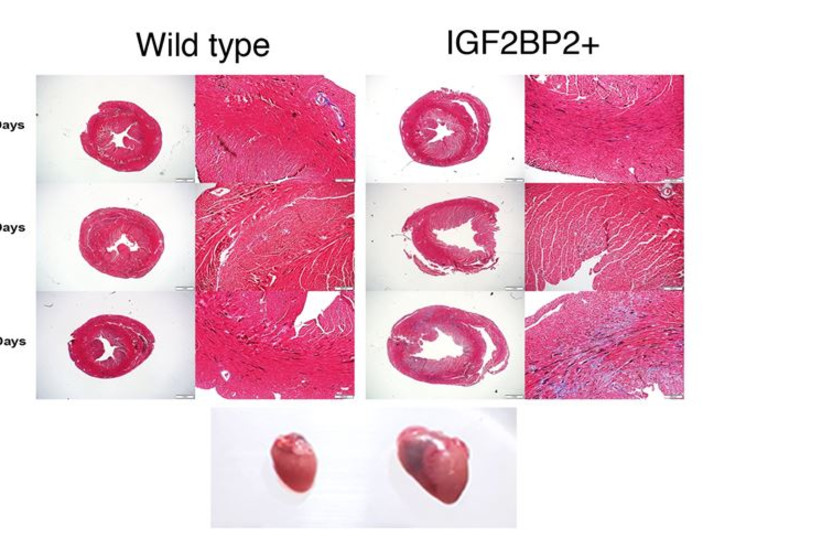The critical role in cardiac-stress response of a protein that binds to RNA has been discovered by researchers at the Hebrew University of Jerusalem (HU), the Hadassah-University Medical Center, and the venerable Martin-Luther University Halle-Wittenburg (established in 1817). They said their discovery paves the way for innovative therapeutic strategies in managing heart conditions.
The research uncovers the role of IGF2BP2 – an RNA-binding protein that in responding to cardiac stress, which involves the cardiovascular system’s response to external stress within a controlled clinical setting. This stress response can be triggered by physical exercise such as using a treadmill or with intravenous pharmacological stimulation of the heart rate. These findings, they said, unlock a previously undiscovered role for the protein named IGF2BP2 in stress-induced cardiomyopathy – a heart-muscle disease in which the walls of the heart chambers have become stretched, thickened, or stiff.
The study, just published in Nature’s Communications Biology under the title “RNA binding protein IGF2BP2 expression is induced by stress in the heart and mediates dilated cardiomyopathy,” highlights how heightened expression of IGF2BP2 leads to DCM, affecting the heart’s ability to pump blood around the body and leading to death. However. a controlled reduction in expression prompts a recovery, hinting at its potential reversibility.
The lead author was Dr. Miriam Krumbein as part of a collaborative effort between the Institute for Medical Research Israel-Canada of HU Prof. Joel Yisraeli and Prof. Sonja Kessler of the German university.
The study also links increased IGF2BP2 levels in patients with DCM or myocardial infarction (heart attack), suggesting that it’s relevant to patients. These findings offer a new understanding of stress-induced cardiomyopathy and open doors for innovative therapeutic strategies, positioning IGF2BP2 as a promising target for treating various heart conditions, potentially transforming patient care in this domain, the authors wrote.

Family of proteins has long intrigued researchers
The IGF2BP family of RNA binding proteins, known for their regulatory influence on intracellular RNA dynamics, has long intrigued researchers. While IGF2BP1 and 3 have been connected with oncofetal antigens – substances produced by tumors and also by fetal tissues but in much lower concentration by adult tissues – IGF2BP2 stands out for its sustained expression in numerous tissues, particularly in the heart throughout adulthood.
This study focuses on IGF2BP2’s response in cardiomyocytes during periods of cardiac stress and remodeling. Researchers observed an elevation in IGF2BP2 expression under stress conditions, followed by a return to baseline levels during cardiac recovery. This pattern prompted the investigation into the potential adaptive role of IGF2BP2 in managing cardiac stress.
Using a mouse line with IGF2BP2 expression that can be enhanced, the researchers observed an unexpected outcome – higher IGF2BP2 expression that inevitably leads to DCM of the heart and subsequent death within three or four weeks in both newborns and adults. However, if transgene expression was downregulated within two weeks, a rescue effect followed. None of the mice died, and complete recovery was observed within three months, indicating the potential for reversibility of this condition.
The prevalence of DCM is a matter of debate but has been estimated to be as high as one in 250 adults. Yisraeli concluded that their findings unlocked a previously undiscovered role for IGF2BP2 in stress-induced cardiomyopathy, paving the way for innovative therapeutic strategies in managing heart conditions.
